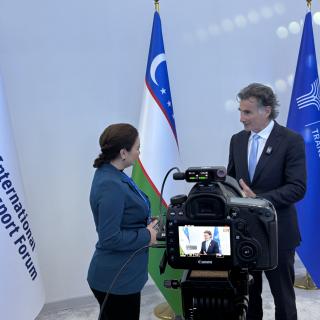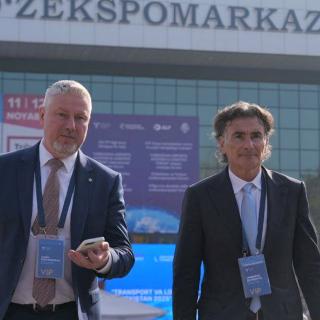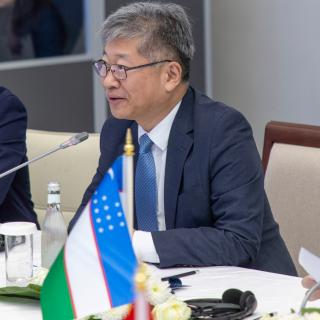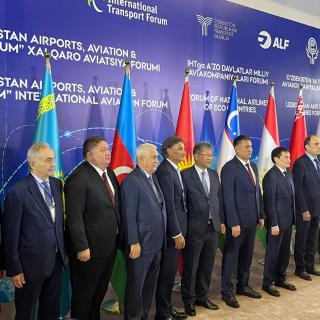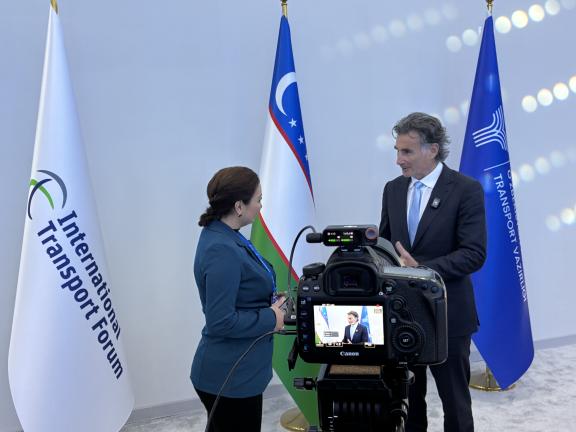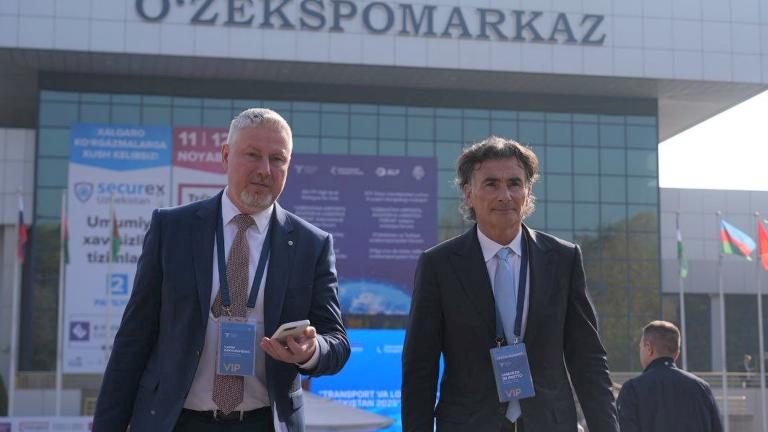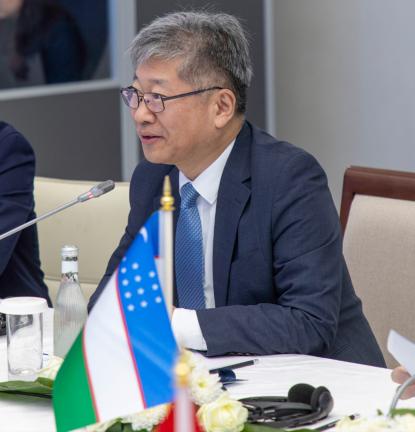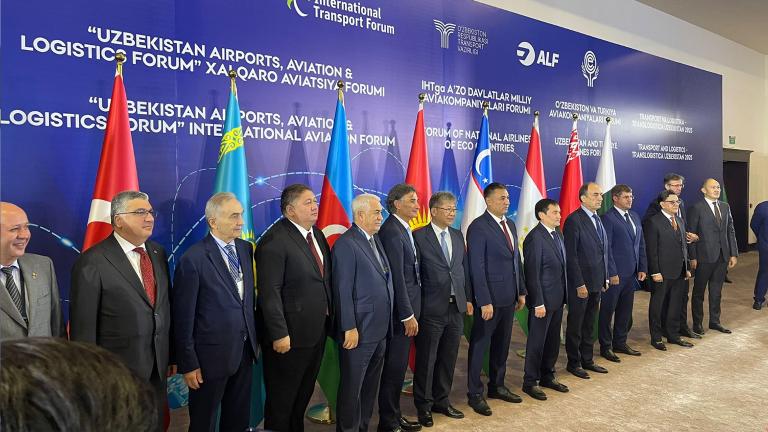IRU underscored the importance of combining hard and soft infrastructure investments to boost connectivity and trade across Asia at the International Transport Forum’s (ITF’s) high-level dialogue in Tashkent, Uzbekistan, this week.
The 4th ITF High-level Regional Dialogue for Asia – a premier platform initiated by ITF Secretary-General Young Tae Kim – brought together transport ministers and industry leaders.
Co-hosted by Uzbekistan's Ministry of Transport, the event provided a unique, high-level space for public and private sectors to align transport policies with economic, social and environmental goals, strengthening cooperation across borders.
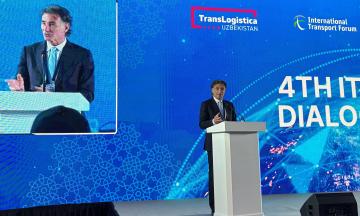
IRU Secretary General Umberto de Pretto said, “In a globalised economy, commercial road transport is not just a mode of transport. It’s a vital production tool connecting businesses, suppliers and markets worldwide.”
“Sustainable development is impossible without robust transport corridors and resilient infrastructure,” he added.
But infrastructure alone is not enough. Efficient goods movements require soft measures that address border bottlenecks, loading and unloading delays, unofficial payments, restrictive policies, and excessive inspections and administrative procedures.
“IRU welcomes every millimetre of new road, especially along the Middle Corridor,” said Umberto de Pretto. “However, hard infrastructure investment must be paired with soft measures, namely improved processes and regulations that support efficient cross-border transport.”
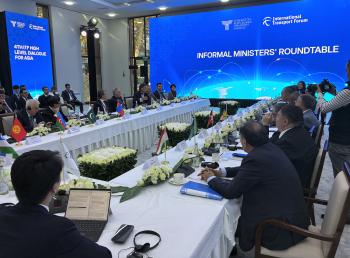
To address the implementation of soft measures, IRU works with countries along the Middle Corridor based on three guiding principles:
- Simplification: Governments should review and streamline existing rules and regulations to eliminate unnecessary administrative burdens.
- Digitalisation: Transport documents should be replaced by data exchange solutions to speed up processes, increase transparency and reduce the number of required documents and the cost of storage.
- Harmonisation: Regulations impacting cross-border commercial road transport should be standardised in a collaborative and coordinated way. This includes the ratification and full implementation of existing UN transport conventions.
“Uzbekistan is a model of connectivity and user of the TIR system,” said Umberto de Pretto. “As the number one issuer of TIR carnets globally, Uzbekistan is now a vital connector along east-west and north-south corridors. TIR and road transport have transformed Uzbekistan from a double-landlocked country to a double-landlinked trade hub.”
The global TIR system, managed by IRU under a UN mandate, cuts transit times by up to 92% and costs by up to 50%.
“The actions of Uzbekistan, and other countries here today, show their understanding of the essential role of road transport. ‘Where road transport goes, economic development follows’,” concluded Umberto de Pretto.
Policy dialogue
The high-level regional dialogue also included three policy sessions.
During the session on digitalisation, IRU General Delegate to Eurasia Vadim Zakharenko highlighted concrete next steps for the implementation of eTIR and e-CMR.
IRU members HPF and CEVA logistics also participated in this policy dialogue session.
HPF presented their progress in developing key corridors in Central Asia with TIR, while CEVA Logistics shared their experience using TIR for multi-modal operations.
Ahead of the event, Umberto de Pretto and the State Customs Committee Chairman Akmalxuja Mavlonov discussed how Uzbekistan can further benefit from the TIR system.

